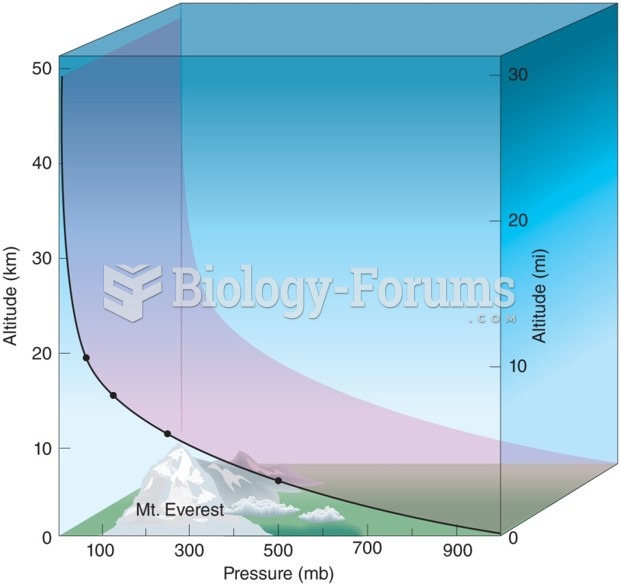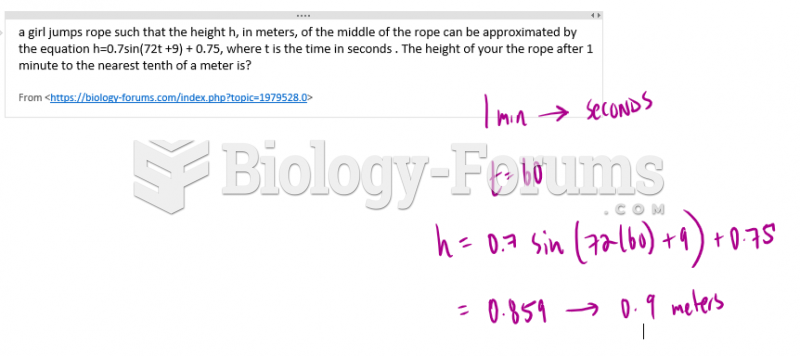|
|
|
According to animal studies, the typical American diet is damaging to the liver and may result in allergies, low energy, digestive problems, and a lack of ability to detoxify harmful substances.
More than 2,500 barbiturates have been synthesized. At the height of their popularity, about 50 were marketed for human use.
When blood is exposed to air, it clots. Heparin allows the blood to come in direct contact with air without clotting.
On average, the stomach produces 2 L of hydrochloric acid per day.
For about 100 years, scientists thought that peptic ulcers were caused by stress, spicy food, and alcohol. Later, researchers added stomach acid to the list of causes and began treating ulcers with antacids. Now it is known that peptic ulcers are predominantly caused by Helicobacter pylori, a spiral-shaped bacterium that normally exist in the stomach.







